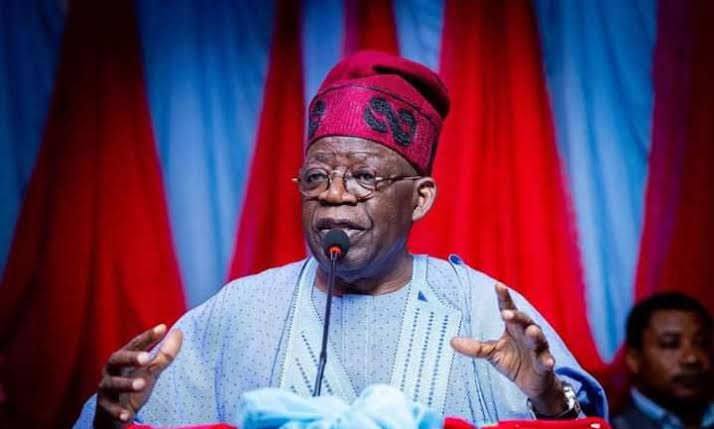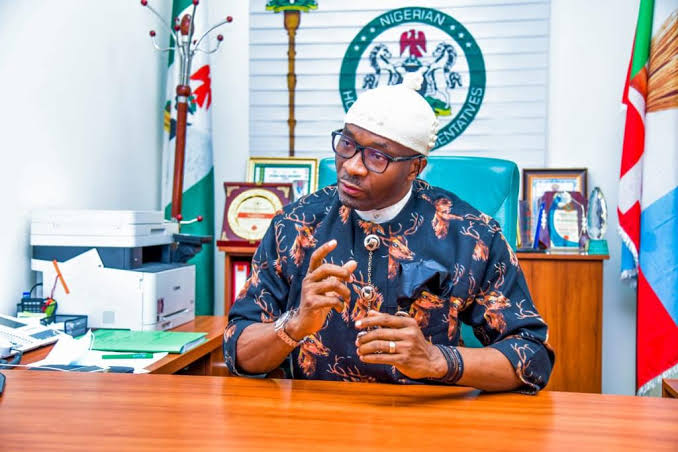News
Tinubu orders probe of unauthorised NIN-SIM linkage

President Bola Tinubu has set up an inter-ministerial committee to investigate allegations of telecom providers linking National Identification Numbers to subscribers’ lines without their consent.
Impeccable sources in the Presidency told our correspondent that Tinubu gave the directive on Tuesday during the Federal Executive Council meeting at the State House, Abuja.
The committee has the National Security Adviser, Nuhu Ribadu, the Minister of Interior, Olubunmi Tunji-Ojo; Budget and Economic Planning, Atiku Bagudu; Communications, Innovation and Digital Economy, Dr Bosun Tijani and the Humanitarian Affairs, Dr Nentawe Yilwatda.
Tinubu, who listened to a briefing by the Minister of Interior, directed that the committee consider the matter and provide the Ministry of Humanitarian Affairs and Poverty Reduction with accurate data to carry out its mandate.
One source privy to the deliberations at Tuesday’s FEC meeting revealed, “It is an inter-ministerial committee; the President asked the Minister of Humanitarian Affairs, the Minister of Interior, the Minister of Budget and Economic Planning, the Minister of [Communications, Innovation and] Digital Economy and that of Education, too, to figure out what is going on and deal with the issue.
“The National Security Adviser is also on that committee. The interior minister is there because, you know, NIMC is under the interior.”
Another source, who asked to remain anonymous, said, “It is true; the President set up a small committee to take care of the challenge of the NIN-SIM linkage. The one involving Telcos. He wants that issue resolved as soon as possible.”
However, it was not clear what timeline the President gave to the committee to investigate the matter and revert to him.
Reports reveal that some telecommunications providers linked customers’ National Identification Numbers to their mobile SIM cards without obtaining consent.
Subscribers discovered that their lines had been linked to unfamiliar NIN records or had their own NIN associated with multiple lines without explicit authorisation.
Consumer advocacy groups and affected individuals have called for investigations into how such linking occurred, emphasising the need for improved transparency and stronger data protection measures.
On Wednesday, the House of Representatives initiated an investigation into the matter.
This followed a motion sponsored by Rep. Patrick Umoh and Professor Julius Ihonvbere during Wednesday’s plenary.
Umoh, who moved the motion, expressed concerns about the risks posed by this unauthorised linkage, particularly the exposure of subscribers to criminal activities and the potential harm to legitimate NIN holders.
He argued that this practice violates the Nigeria Data Protection Act, 2023, and the Nigeria Data Protection Regulation, 2019, which protects the privacy and personal data of all Nigerians.
“This action is a clear violation of the Nigeria Data Protection Act and the NDPR, which guarantee the right to privacy and data protection for every Nigerian,” Umoh argued, adding that “The linking of NIN to SIM cards without consent exposes citizens to serious risks, including identity theft, financial fraud, and other forms of cybercrime.”
The lawmaker also highlighted how innocent citizens have been wrongfully implicated in crimes, facing reputational damage, harassment, and legal challenges due to unauthorised data linking.
Therefore, the House tasked its Committees on Communications and Interior with investigating the matter and submitting a report in four weeks.
It also urged the Nigerian Communications Commission to investigate telecom providers involved and take immediate action against those found wanting.
Tuesday’s FEC meeting was the second in the two days, as council members considered 101 memos in both sittings.
News
A Chat with Janet Odio Okolo: A Mother’s Journey Raising a Child with Down Syndrome

News
Hon. Nnamchi Begins Street Lights Deployment In Isi Uzo(Photos)

Honourable Paul Sunday Nnamchi, representing Enugu East/Isi Uzo Federal Constituency in the 10th House of Representatives, has fulfilled his promise to illuminate communities in Isi Uzo Local Government Area.
The lawmaker has just begun the deployment of high-density solar-powered street lights in Ikem Nkwo, marking the beginning of a massive rollout of the street lamps across the communities in Isi Uzo.
This initiative, which started in Enugu East Local Government Area in 2024, aims to support the fight against insecurity in the state which according to him was to add to what Chief Security Officer of Enugu State Barrister Peter Mba had done to secure the state to attracts foreign investments.
The lawmaker expressed concern over banditry attacks, particularly by herdsmen, in some communities within Isi Uzo and Enugu East Local Government Areas in the recent pasts.
He believes that illuminating these areas with high-density street lights would help address the insecurity adding that he was prioritizing border and farming communities in Isi Uzo, where banditry has displaced residents and restricted farming activities.
Communities in Ikem, Eha-Amufu in Isi Uzo which borders Enugu and Benue State and Ugwogo-Nike in Enugu East have been vulnerable to these attacks due to their strategic locations.
News
May Day: Kalu Hails Workers, Applauds Their Role in Nation Building

By Gloria Ikibah
Deputy Speaker of the House of Representatives, Rep. Benjamin Kalu, has extended warm wishes to Nigerian workers as the country marks the 2025 edition of International Workers’ Day.
Kalu praised workers across various sectors for their commitment and resilience, describing them as the engine that keeps the nation moving. He acknowledged their sacrifices and unrelenting drive, especially during tough economic times.
In his message, he highlighted the efforts of the current administration under President Bola Tinubu to improve the welfare of public servants. He referenced the National Assembly’s prompt backing of the new minimum wage as a sign of the government’s seriousness about workers’ wellbeing.
The Deputy Speaker appealed for continued patience and understanding from Nigerians, noting that the ongoing economic reforms, while challenging, are designed to bring long-term relief and prosperity.
Kalu also called for unity, and said the country can only overcome its present difficulties if citizens and leaders work together in good faith.
He therefore urged workers to keep the faith and remain steadfast in their duties, assuring them that brighter days are on the horizon, and wished Nigerian workers a peaceful and fulfilling May Day celebration.
-

 Metro19 hours ago
Metro19 hours agoGunmen storm University of Benin teaching hospital, kill doctor
-

 Metro20 hours ago
Metro20 hours agoFCTA destroys 601 motorbikes over violations
-

 News11 hours ago
News11 hours agoAlleged money laundering: EFCC produces Aisha Achimugu in court
-

 News20 hours ago
News20 hours agoJust in: FG declares tomorrow public holiday
-

 News13 hours ago
News13 hours agoJUST IN: Major General Paul Ufuoma Omu Rtd, dies at 84
-

 News13 hours ago
News13 hours agoTinubu hails Dangote’s World Bank appointment
-

 News15 hours ago
News15 hours agoSAD! Professor’s son takes own life inside varsity staff quarters
-

 News19 hours ago
News19 hours agoFull list: FG approves N110bn to rehabilitate medical schools 18 institutions























